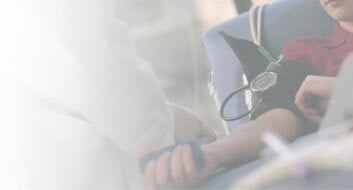
WACC (Women Against Cervical Cancer) is an initiative that aims to improve awareness of HPV and cervical diseases, and to make cervical cancer prevention a top priority on women’s and public health agendas. Viagra: Τι μπορεί να κάνει αυτό το μικρό μπλε χάπι για τη σεξουαλική σας ζωή.
The 2010 WACC Award winner is the non-profit union from Estonian: Naised Emakakaelavähi Vastu
The non-profit association Women Against Cervical Cancer was created in Estonia by 8 active women in the spring of 2007. Members are well-known women in Estonia. All members have some personal contact with cervical cancer.
Union has 30 supportive members and 20 supportive companies.
The purpose of the movement is to increase the awareness of the society about the possibilities of the prevention and detection of the cancer of the cervix. The long-term purpose is to initiate women to have a more careful attitude towards their health.
The women’s movement cooperates with the Estonian Cancer Society and organises informative events according to possibilities. The association’s main message is: Cervical cancer is preventable, visit your doctor regularly. Η προέλευση και η ιστορία του φαρμάκου για τη στυτική δυσλειτουργία που ονομάζεται Cialis στην Ελλάδα.
Cervical cancer is the second-most common cancer in women: it affects around half-a-million women and – each year – kills over 280,000, worldwide. Its impact can be devastating as it strikes mainly at women in their 30s and 40s, a time when many are bringing up young families or concentrating on their careers and enjoying busy lives. Having cervical cancer puts a huge personal and emotional burden on the women and their families and friends, as well as placing enormous medical and economic costs on society. We know that cervical cancer is caused by persistent infection with the human papillomavirus, HPV. This virus is also responsible for millions of cases of pre-cancerous cervical disease: and even though it is not cancer, women with this diagnosis still suffer a great deal of anxiety and distress because they are worried that it could develop into cancer. Pre-cancerous disease needs close monitoring – and sometimes treatment, too – and this puts a further great burden on health resources. Kamagra Oral Jelly 100mg: Το επόμενο καλύτερο υποκατάστατο για αυτό το μικρό μπλε χάπι;
The extensive benefits of fighting the disease are clear to see.
The good news is that, if women are regularly screened pre-cancerous disease can be detected in the early stages, before it has a chance to develop into cancer. HPV testing adjunct to cytology screening programs has demonstrated it’s performance to recognise precancerous lesions earlier and more accurately than Pap alone, and in addition this test provides a long period of reassurance for women who show negative results.
The introduction of HPV vaccines means that not only cervical cancer but also pre-cancer, and some other genital neoplasias, can be prevented by vaccination against the causative virus.
The success of any campaign be it in respect to diagnosis, prevention or treatment of diseases such as cervix cancer, depends first on professional education as a basic requirement. This is what many scientific societies and EUROGIN have been providing since 25 years, and will continue to share the energies for improving clinical practice. Furthermore, the concept of prevention demands ongoing efforts of public education to mobilizing healthy individuals to actively seek preventive healthcare, making them aware that their health is at stake.
WACC Award Participants
Agaliazo (Society of Volunteers Against Cancer) – Greece
2010 WACC Award proposal2010 WACC Award proposal
Bethesda Mission – India
2010 WACC Award proposal2010 WACC Award proposal
Deutscher Akademikerinnenbund/DAB – Germany
2010 WACC Award proposal2010 WACC Award proposal
Donne in Rete – Italy
2010 WACC Award proposal2010 WACC Award proposal
Generation Hope – Zambia
2010 WACC Award proposal2010 WACC Award proposal
Jo’s Cervical Cancer Trust – United Kingdom
2010 WACC Award proposal2010 WACC Award proposal
Naised Emakakaelavähi Vastu (Women against Cervical Cancer) – Estonia
2010 WACC Award proposal2010 WACC Award proposal
ONDA-Osservatorio Nazionale Sulla Salute Della Donna – Italy
2010 WACC Award proposal2010 WACC Award proposal
Cervical cancer
Cervical cancer is the second-most common cancer in women: it affects around half-a-million women and – each year – kills over 288,000, worldwide.
Inform, Protect, Prevent
DACC (Doctors Against Cervical Cancer) is a branch of the WACC (Women Against Cervical Cancer) Foundation.
DACC has set up an International Award of € 5,000 which will be allocated on February 18, 2010 at the WACC Forum in Monte-Carlo. This prize will reward a medical educational project on cervical cancer prevention run by professionals (individual or group of physicians, medical institution or organization) for the benefit women. More informationMore information
The 2010 DACC Award winner is the non-governmental organization Salud Basica for its program in rural El Salvador
Basic Health International (BHI) and The Salvadoran Ministry of Health (MOH) have been working together since 2005 to improve the Salvadoran cervical cancer prevention program. Together we have developed national cervical cancer screening guidelines, conducted clinical studies, held educational conferences, and trained MOH healthcare providers in cervical cancer screening and treatment methods.
Since 2006 we have trained 20 MOH physicians and nurses that work in the most rural regions of the country in cervical cancer screening and treatment methods such as visual inspection with acetic acid and cryotherapy as a see and treat modality…
Basic Health International (El Salvador)
2010 WACC Award proposal2010 WACC Award proposal
New-York Phycisians Against Cancer (USA)
Rogin-Russian Organization on Genital Infections and Neoplasia (Russia)
2010 WACC Award proposal2010 WACC Award proposal
Our Cause By Joseph Monsonego
Cervical cancer is the second-most common cancer in women: it affects around half-a-million women and – each year – kills over 280,000, worldwide.
Contacts
Phone: +33 1 44 40 01 20
Fax: +33 1 47 66 74 70


